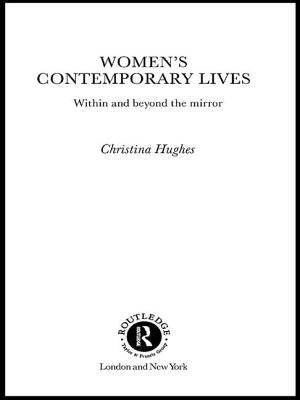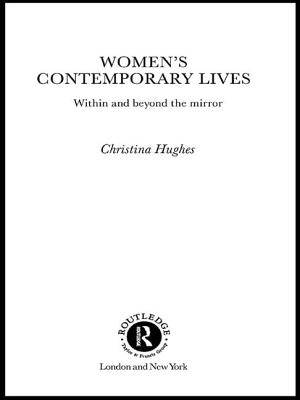
- Afhalen na 1 uur in een winkel met voorraad
- Gratis thuislevering in België vanaf € 30
- Ruim aanbod met 7 miljoen producten
- Afhalen na 1 uur in een winkel met voorraad
- Gratis thuislevering in België vanaf € 30
- Ruim aanbod met 7 miljoen producten
Omschrijving
As increasing numbers of women return to work or education after starting or raising a family, it can no longer be assumed that education, employment, family is a defining progression for women in the Western world.
Women's Contemporary Lives questions notions of success and equality as they are measured for women in and across the interconnected domains of work, education and family. Christina Hughes asks whether equal opportunity feminism is promising the impossible, and questions those who suggest that women's high achievement in education and the workplace means that there is no longer a need for feminism in social policy.
Exploring how age, class, race and sexuality have influenced and continue to influence women's expectations and assessments, Women's Contemporary Lives points to a feminist agenda for social change based on a more inclusive and fluid interpretation of female subjectivity.
Specificaties
Betrokkenen
- Auteur(s):
- Uitgeverij:
Inhoud
- Aantal bladzijden:
- 176
- Taal:
- Engels
Eigenschappen
- Productcode (EAN):
- 9780415239738
- Verschijningsdatum:
- 6/12/2001
- Uitvoering:
- Hardcover
- Formaat:
- Genaaid
- Afmetingen:
- 162 mm x 248 mm
- Gewicht:
- 390 g

Alleen bij Standaard Boekhandel
Beoordelingen
We publiceren alleen reviews die voldoen aan de voorwaarden voor reviews. Bekijk onze voorwaarden voor reviews.











